

Custom Search
Saturday, March 12, 2016
TRUMP GRABS FLORIDA BECAUSE RUBIO HAS FALLEN AND CAN'T SEEM TO GET UP
TRUMP GRABS FLORIDA BECAUSE RUBIO HAS FALLEN AND CAN'T SEEM TO GET UP:
HAVE ROMNEY & OTHER GOP ESTABLISHMENT LEADERS RUINED RUBIO'S POLITICAL FUTURE?
Sources: Washington Post, Youtube
After listening to GOP establishment leaders and strategists who advised him to pummel 2016 presidential Frontrunner DONALD TRUMP with silly insults, it now appears as if Trump's challenger U.S. Senator MARCO RUBIO has taken a nosedive.
Rubio's plan to destroy Trump with insults has backfired terribly and made him appear like a desperate career politician willing to do anything to win.
It's no doubt Rubio is finished on the 2016 presidential campaign trail but what about his future political endeavors?
Many people predict that Rubio won't even be able to carry his home state during the Florida Primary on March 15.
So is Rubio finished and destined to return to the private sector?
Stay tuned.
Marco Rubio had suffered three electoral thumpings in a row when the senator from Florida and his image-makers abruptly shifted strategy. The aspirational candidate, whose presidential campaign was built on a promise of generational change and Republican unity, would morph overnight into Donald Trump’s chief assailant.
Rubio launched what he and his team felt was an imperative assault on the front-runner at the Houston debate on Feb. 25.
The next morning at a Dallas rally, he mocked Trump mercilessly. Rubio whipped out his iPhone and, with boyish glee, read aloud the billionaire mogul’s misspelled tweets. He made fun of Trump’s makeup and “sweat mustache,” and suggested the mogul had wet his pants.
For the next three days, Rubio’s crude schoolyard taunts continued: over Trump’s made-in-China suits, his “horrible spray tan” and his small hands — a quip that, as Trump would later explain on the debate stage in Detroit, implied something else was small, too.
Rubio's benefactors were aghast to see their candidate practicing Trump’s gutter politics. “Everyone went, ‘What?. . . Why are you going down to that level?’ ” recalled one fundraiser, who spoke on the condition of anonymity to talk candidly. “You might as well support Trump.”
Looking back, Rubio’s supporters see these fateful days as central to his unraveling.
A strategy designed to get under Trump’s skin and force him on the defensive instead backfired on Rubio, diminishing the 44-year-old senator who had spent years trying to demonstrate presidential gravitas. At rally after rally, Rubio was unintentionally personifying the caricature that Trump was perpetually drawing of him: “Little Marco.”
The results were not pretty. Rubio lost 18 of the next 20 contests, with his only wins in Minnesota’s caucuses and Puerto Rico’s primary. The ultimate humiliation came on Tuesday, when Rubio performed so poorly in four states — he got just 5 percent in Mississippi — that he was shut out from gaining any delegates.
A reflective Rubio expressed regret Wednesday over his name-calling of Trump, saying at an MSNBC town hall that the insults had upset his children.
“In terms of things that have to do with personal stuff, yeah, at the end of the day it’s not something I’m entirely proud of,” Rubio said. “My kids were embarrassed by it, and if I had to do it again, I wouldn’t.”
A cloud of fatalism
Rubio vowed to soldier on into next Tuesday’s must-win Florida primary. “I will campaign as long and as hard as it takes,” the senator, joined by wife, Jeanette, said at a Wednesday evening rally in Hialeah, a heavily Cuban American city outside of his Miami home town.
But a cloud of fatalism now hovers over his campaign. Aides on Wednesday tried to beat back rumors he would quit the race — perhaps before Thursday’s CNN debate in Miami. Donors exchanged grim messages about Rubio’s fate in Florida, where his campaign, short on cash, is running no advertisements. New polls showed him trailing Trump here badly.
Supporters in the small and subdued Hialeah crowd all but conceded defeat. “I’ve been around for a long time,” said Sal Pittelli, 70. “And you can smell the flop sweat.”
Meanwhile, rival Ted Cruz of Texas, campaigning in Miami, needled Rubio by arguing that his was the only “credible path” to deny Trump the nomination.
It's certainly a possibility that he could lose on Tuesday, and perhaps by double digits,” said John McKager “Mac” Stipanovich, a Tallahassee lobbyist and Rubio supporter. “He’s sworn to win, which might take some divine intervention, but that’s what he’s said, and he’s trying to persuade the people who love him and follow him that that’s the case.”
There was evidence of some Rubio enthusiasm in South Florida. Blue “Florida Is Marco Rubio Country” signs adorn many lawns and busy intersections, and the campaign has secured valuable airtime on Radio Mambi, an AM station that is popular among the region’s Cuban Americans. Rubio aides host 15-minute segments each morning.
Adam Hasner, Rubio’s Florida campaign co-chairman, dismissed the suggestion that Rubio might drop out before the primary. He noted that Rubio plans to attend a series of Florida fundraisers on Friday and would campaign hard across the state.
“He has demonstrated that he has a message that resonates and he’s the right messenger,” Hasner said. “He’s come so far in six years, to leave it a couple of yards from the goal line and taking a knee on third down? It’s just not who Marco Rubio is.”
Rubio’s major donors are descending on Miami for a finance retreat. They will be joined for lunch Thursdayby New Mexico Gov. Susana Martinez, an endorser, and by Rubio at breakfast Friday.
Rubio’s backers on Capitol Hill tried to show a united front of optimism amid the negative chatter.
“I hope Marco wins. I know he’s working really hard. I’m with him on this,” said Sen. Deb Fischer (R-Neb.). But she declined to address next steps if Rubio does not win Florida. “We’re positive,” she said. “I think he’s the guy, going to keep supporting him. We’ll find out next week.”
Other Rubio associates were downright despondent. They were reticent to speak openly because they did not want to damage their friend’s prospects, but one confessed privately, “I don’t see how this campaign continues.”
Miami locals who know Rubio and his family and have supported his campaigns over the years said they blame Rubio’s advisers for improperly managing what seemed to them only a few weeks ago like a sure thing.
“Up until he started talking about how Trump has a small penis, it was brilliant,” said the same friend, who spoke on the condition of anonymity to talk candidly. “Focusing on the size of his hands or the color of his skin — that was stupid.”
‘Pretty much finished’
There are a multitude of reasons to account for Rubio’s collapse: He is a career politician in a season when GOP primary voters crave outsiders; he was the subject of tens of millions of dollars in negative advertising from former Florida governor Jeb Bush’s super PAC; he could not raise enough money to keep up his own ad blitz; his ground game was weak; and his Senate work seeking comprehensive immigration reform constituted apostasy to many conservatives.
Yet another reason is that Rubio has no natural base. In the sprawling field, he was never the most experienced establishment-friendly candidate (that was Bush), nor the most conservative ideological warrior (Cruz), nor the rebellious outsider (Trump).
“Beyond the appeal of his personal story, I’m not sure Marco ever grew a constituency that would carry him to the finish line,” said Stipanovich, who initially supported Bush.
Interviews with more than a dozen Rubio advisers, fundraisers and other supporters suggest that perhaps the key inflection point came in that late-February change of strategy on Trump, when Rubio sacrificed the uplifting message that had won over late-deciding voters in Iowa and South Carolina for an all-out brawl.
was when private pollsters tracking the race began to see Rubio’s favorability rating and his standing in the horse race stall out and soon erode.
Consider Kansas, where one private poll showed Cruz, Rubio and Trump in a virtual tie a week before the caucuses there. Rubio lunged for the win: He trumpeted the endorsements of Gov. Sam Brownback and Sen. Pat Roberts, as well as the revered former Senate leader Robert J. Dole, and campaigned hard there for a full day. But in last Saturday’s voting, Rubio ended up a distant third with 16.7 percent; Cruz won with nearly half of the vote.
Rubio found himself locked in a downward spiral. He kept arguing on the stump that he was the most electable candidate and could unite all factions of the Republican Party. Yet electable candidates are expected to win — and Rubio was mostly losing.
“Those exchanges with Mr. Trump were damaging,” Al Cardenas, a conservative activist who is a Bush friend and a former Rubio employer, wrote in an email. “Perhaps not as damaging as the dismal results in Kansas, Maine and Louisiana. If you finish under 20 percent in the South, Midwest and Northeast, this far out in the campaign, you are pretty much finished.”
‘It was a conscious decision’
Rubio’s pivot to Trump was by all accounts deliberate and carefully planned. With the exception of his debate meltdown in New Hampshire — when he was mocked for robotically repeating talking points — Rubio had a strong early February, slowly gaining momentum, money and high-wattage endorsements. Once Trump beat him and Cruz in South Carolina and Nevada, however, Rubio’s supporters agitated for him to take a more aggressive stance or risk letting Trump run away with the nomination.
Randy Kendrick, an influential conservative donor, said she and her husband, owner of the Arizona Diamondbacks, encouraged Rubio to go on the offensive, “defining Trump.”
“Stand up for what we believe in,” she said. “If we lose, okay. But he will be able to say, ‘We did the right thing.’ ”
As the Houston debate approached, the senior leadership of Rubio’s campaign decided to go after Trump. They fed the candidate a mountain of opposition research about Trump’s business dealings and past liberal positions. Senior adviser Todd Harris, who runs Rubio’s debate preparation sessions, helped him develop specific lines of attack that would serve Trump some of his own medicine.
“Rubio felt he needed to point out some of Trump’s massive inconsistencies — and to try to do it with a little bit of humor,” said one Republican with knowledge of the preparations, who requested anonymity to speak candidly. “It was a conscious decision.”
In the post-debate spin room, Rubio’s team boasted that their candidate had finally found Trump’s Kryptonite.
“Donald Trump has always been effective at picking up someone’s perceived weakness, and really exploiting it,” campaign manager Terry Sullivan told reporters. “Well, guess what? Marco has Donald’s number. And it’s that this is a joke.”
Harris told reporters that Rubio had proved he could “mix it up” by mocking Trump. “Was it a substantive argument? No,” he admitted. “But as we’ve seen from most of, if not all of, the media coverage over the past eight months, trying to wage a battle of substance against Trump is a pretty futile effort.”
At that point, Harris described the petty attacks as a tactic, not a new strategy. “We’re not going to go chase all of these little temporary narratives, temporary media trends, and whatever seems to be trending on Twitter,” he said. “The overwhelming majority of Marco’s stump speech is positive, and that’s not going to change.”
Not 12 hours later, Rubio’s stump speech had changed — dramatically. At a rally in downtown Dallas, Rubio spent close to eight minutes taking potshots at Trump, even as his audience’s titters turned to nervous unease.
“First [Trump] had this little makeup thing applying, like, makeup around his mustache because he had one of those sweat mustaches,” Rubio said. “Then, then he asked for a full-length mirror. . . . He wanted a full-length mirror, maybe to make sure his pants weren’t wet — I don’t know.”
The speech was carried live on cable news. Donors swamped Rubio and his advisers with messages urging him to abandon the insult-fest. Eventually, after he lost 10 of 11 states on Super Tuesday, Rubio dropped the line of attack.
In the days that followed, Rubio insisted his swipes at Trump did not define his candidacy. Trump is a bully, he said, and bullies must be stood up to. Then at Wednesday’s MSNBC town hall, Rubio not only voiced regret, but also blamed the insult-spewing front-runner for setting a juvenile tone for the entire race.
“I don’t want to be that,” Rubio said. “If that’s what it takes to become president of the United States, then I don’t want to be president.”

Subscribe to:
Post Comments (Atom)


















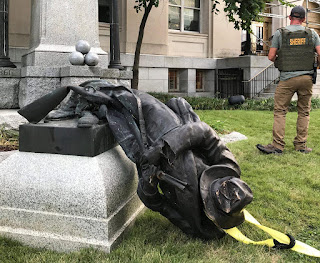

























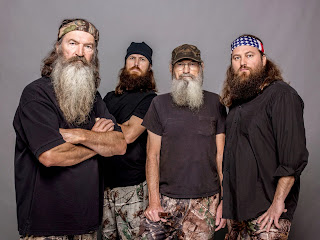






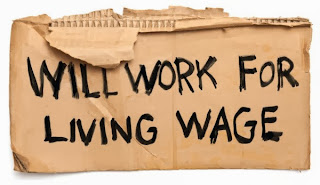












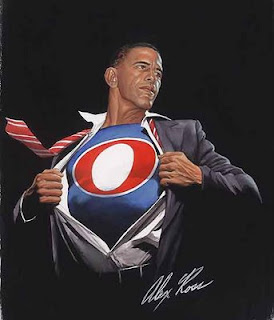




.jpg)








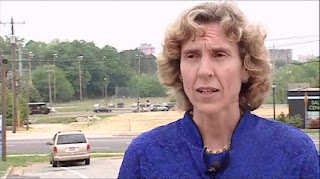














No comments:
Post a Comment